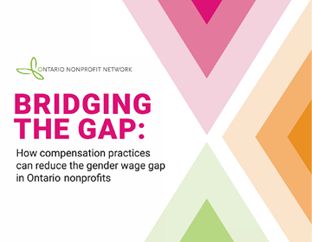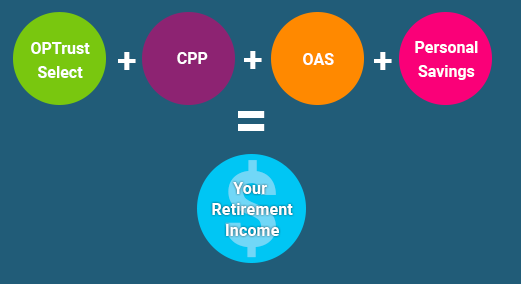Decent wages and contracts
Fair income is one common aspect of decent work. This involves not only salaries, but also income security: paid holiday, parental and sick leave, and steady work hours that allow for a predictable income. Support for fair income might mean promoting and adopting “living wage” policies or other standards that promote income fairness within, and between, workplaces.
“The 2022 living wage rates range from $23.15 for the Greater Toronto Area to $18.05 in London. Many areas will see an increase in living wage rates over last year’s calculations. Sault Ste. Marie’s rate will increase by 21.6% to $19.70 per hour, which is the largest increase. Thirteen areas, as defined by the previous boundaries, will see an increase of over 10%. Because our calculations have always been made reflecting real local costs—which have all gone up by unprecedented levels—it is a natural outcome that the local rate would follow, regardless of the boundaries used.”

| East | $19.05 |
| Dufferin Waterloo Guelph-Wellington | $19.95 |
| Brant Niagra Haldimand Norfolk | $19.80 |
| London Elgin Oxford | $18.05 |
| Southwest | $18.15 |
| Grey Bruce Perth Huron Simcoe | $20.70 |
| North | $19.70 |
| Ottawa | $19.60 |
| Toronto | $23.15 |
| Hamilton | $19.05 |
Decent wages require decent funding practices
There is no doubt that within Ontario’s nonprofit sector, decent funding practices can support the advancement of decent wages, and working conditions overall. Decent funding can allow for stable and secure employment, in addition to equitable wages. As we think about decent wages we must also examine how often people with the most ‘professionalized’ skills and experience earn much more than people doing manual labour or community-facing roles, reinforcing existing privilege. When we hire freelancers we often don’t think about their lack of security, or how we could treat them differently.
Ontario Nonprofit Network (ONN) learned through its decent work for women research that women workers in Ontario’s nonprofit sector experience a gender wage gap. A key way to reduce the gender wage gap is for organizations to use equitable compensation practices that address systemic barriers women, especially historically underserved women, face in compensation. “Bridging The Gap” is a tool to support your organization in aligning decent wages with an intersectional gender equity lens.
| Adequacy of lowest paid positions in our organization | |
|---|---|
| Government-mandated minimum wage | |
| More than $20 an hour. (“Living Wage” research has identified $23.15 as the wage needed to live adequately in the City of Toronto, given current costs of living in an urban setting.) |
| The spread between the lowest and highest wages in our organization | |
|---|---|
| Highest paid staff are paid more than 5 times the average wage of the lowest paid 10% of our organization’s positions. | |
| Highest paid staff are paid no more than 8 times the average wage of lowest paid 10% of our organization’s positions. (WageMark proposed ratio) | |
| Highest paid staff are paid less than 8 times the average wage of lowest paid 10% of our organization’s positions of lowest paid 10% of our organization’s positions. |
| Annual salary increases across position levels | |
|---|---|
| Our organization actively seeks to increase salary based on cost of living when possible. | |
| Our organization has created funding plans to support consistent wage increases. | |
| Our organization doesn’t offer wage increases, but offers other benefits in lieu. |
Decent work practice
Organizational pay grid
Pay transparency is an important decent work practice that is connected to decent wages. In our podcast episode on Pay Transparency and Decent Work, Paul Taylor, former executive director of FoodShare, names the coded nature of silence that is rooted in white supremacy when we are not upfront about pay scales and pay equity within an organization.
Resource: FoodShare’s Pay Grid
Maternity and parental leave benefit top-ups
Top-ups = Decent work for new parents of all genders
Maintaining income levels for new parents of all genders is good social policy and a decent work employer practice. We know that new parents who take leave to care for children, most of whom are usually women, experience a significant loss of income. Also, there is evidence that top-up benefits help employers of all sizes to attract and retain top talent, lowering the high cost of employee turnover.
In addition to extended benefits (such as holiday pay, parental and sick leave, which are governed by the Employment Standards Act), access to retirement income security, sick leave, disability support, and essential healthcare are some of the most central elements of the International Labour Organization’s social protection pillar. These are especially important to the nonprofit sector as a key driver of dignity in the workplace, and making our sector an employer of choice.
| Key benefits for full-time staff | |
|---|---|
| Those mandated in Ontario’s Employment Standards Act (ESA). | |
| Paid sick leave and/or wellness days | |
| Paid holiday time above ESA minimum. | |
| When needed and appropriate, employee has the flexibility to use combined leave, e.g. bereavement leave with wellness leave. | |
| Co-pay (by employer) or sole pay health and dental benefits. | |
| Employer/employee pension or retirement savings plan. | |
| Maternity and parental leaves are supplemented with a “top-up”. | |
| Benefit plans are reviewed regularly. |
| Pro rated benefits (or wages in lieu of benefits) for part-time and/or contract staff | |
|---|---|
| Those mandated in the ESA. | |
| Paid sick leave. | |
| Paid holiday time above ESA minimum. | |
| Employee has the flexibility to extend maternity and parental leave by accessing unused sick and vacation time. | |
| Co-pay (by employer) or sole pay health and dental benefits. | |
| Some kind of employer/employee pension or retirement savings plan. | |
| Maternity and parental leaves are supplemented with a “top-up”. |
| Mental health support | |
|---|---|
| Staff are provided with mental health days or wellness days that are separate from traditional sick days. | |
| Access to Employee Assistance Program (EAP) that is culturally relevant. | |
| Access to supports to alleviate workplace stresses. |
Decent work practice
Pension plans
Nonprofits play a vital role in the social and economic development of our communities. With a healthier and better-supported workforce, our organizations can lead by example, and be better positioned to strengthen our communities and our province.
A decent retirement plan extends the sector’s commitment to building decent work. ONN is proud to recommend OPTrust Select, a sector-wide pension plan. By offering this pension, the sector will attract and retain more high-calibre professional staff with the skills and knowledge to deliver huge public benefit to the people of Ontario for years to come.
Decent contract security
There is pressure in the labor market to increase the use of “precarious” part-time and limited-term job contracts to carry out work that used to be done by full-time permanent staff. In some instances, this is done to achieve flexibility, and is a necessary part of some staffing models (for example, with relief and emergency workers). However, this can also be a practice used to avoid the added costs associated with full-time and permanent contracts. The extent to which the nonprofit sector can resist these trends will determine whether or not we can continue to provide good jobs for many people in our workforce.

Lack of contract security is connected to promoting equity within organizations. In our conversations with Black-mandated, -serving and -led (B3) organizations, and workers across the province, a major theme that emerged was contract instability. It was a key factor in systemic anti-Blackness playing out within organizations, because it creates lack of stability. Advocacy around decent funding within the philanthropic sector has been critical to ensuring organizations have access to core and stable funding to ensure that B3 organizations and other equity deserving groups are able to offer decent contracts and stable employment to carry out their organizational mandates.
| Ratio of part-time to full-time staff positions | |
|---|---|
| Part-time staff represent over one-third (33%) of our workforce. | |
| Part-time staff represent between 20% and 33% of our workforce. | |
| Part-time staff represent less than 20% (one in five positions) of our workforce. |
| Over the past 5-7 years, the ratio of contract to permanent staff positions has: | |
|---|---|
| Increased. There are now a greater number of limited-term or contract positions relative to permanent positions at our organization. | |
| Stayed about the same. | |
| Decreased. There are fewer limited-term or contract positions relative to permanent positions. |
| Do part-time or contract staff get access to benefits? | |
|---|---|
| No. | |
| Yes, pro-rated benefits or pay in lieu of benefits are added to wages. | |
| Yes, pro-rated benefits and higher wage levels are provided (e.g. “living wage” rates). |
| Which contracts provide job security for project positions? | |
|---|---|
| Staff working on long-term projects are provided one-year contracts. | |
| Staff working on long-term projects are provided contracts for duration of project. |
| Has the organization examined contract security based on equity related factors? | |
|---|---|
| No, we do not capture metrics staff demographics. | |
| Yes, we capture metrics on staff demographics. | |
| Yes, we capture metrics on staff demographics and use an equity lens to examine staff composition. We actively examine how inequities may be playing out in who gets offered contract security. |





